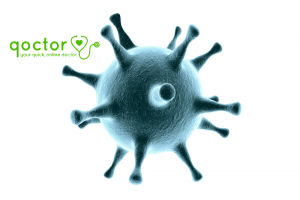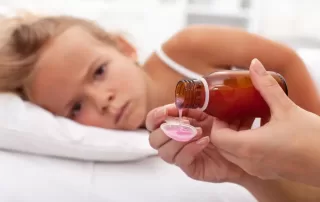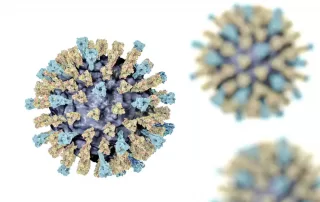Cold Sores
Welcome to Qoctor’s online doctor service which can provide assessment for Cold Sores. Answer some online questions, then book a consultation with an AHPRA-registered doctor. Repeats available (subject to assessment). Please also note, your pharmacist may be able to assist you with over the counter treatments for cold sore.
The consultation fee is $29.99. If a prescription is advised, it can be sent as an eScript to your phone OR electronically to your local pharmacy. Alternatively you can have medication delivered by an Australian partner pharmacy- in this case, the cost of medication is added at the checkout. All treatment and advice is issued subject to your doctor’s assessment.
About Cold Sores
Cold sores are caused by the Herpes Simplex Virus (HSV1), which is spread by skin to skin contact. About 1 in 5 people have cold sores that flare up from time to time. They usually get better without treatment in 7-10 days, though sometimes antiviral creams or tablets may be used to ease symptoms.

FAQs about HSV1 & cold sores
- Cold sores are caused by the Herpes Simplex Virus Type 1, otherwise known as HSV1.
- HSV2 is a similar virus which usually causes genital herpes, but rarely can also cause cold sores around the mouth.
- Cold sores are spread by skin to skin contact, such as kissing someone who has an active cold sore.
- The first infection may not cause any symptoms, but may be triggered later.
- Cold sores can be triggered by stress, fatigue, viral illness, strong UV/sunlight exposure or during menstruation.
- Cold sores are spread by skin to skin contact
- If you have active cold sores you should avoid newborn babies, elderly, or anyone with a weak immune system (e.g on chemotherapy)
- If you have no active cold sores, you’re not usually infectious to others.
- No, usually you do not need any tests to diagnose cold sores.
- The diagnose tends to be obvious, based on history and the appearance of the lesions
- However, if there’s any doubt, your GP can perform a swab and send it to the laboratory for analysis for HSV1.
• People with recurring cold sores occasionally worry that there’s something wrong with their immune system, or that they’re deficient in a vitamin or mineral. But cold sores are very common, and most people who get them are otherwise perfectly well.
• Sometimes tiredness or another viral illness can make you more prone to cold sore flare ups
• If you’re worried, speak to your doctor- they may recommend some general blood tests to check for an underlying cause.
• Usually no particular medication for cold sores is recommended- they naturally get better over 7-10 days.
• There is some general advice when you have active cold sores, such as avoid touching the cold sores; wash hands regularly especially after applying creams or before putting in your contact lenses; and don’t share lip balm or sunscreen.
• Over the counter painkillers like Panadol and Nurofen, or topical anaesthetic gels (e.g Lidocaine) may be helpful for pain/discomfort.
• Antiviral Creams can be bought at your pharmacy- these do not kill the virus but prevent it from multiplying which may reduce symptoms a little.
• Oral antiviral medication may be prescribed to reduce the severity of symptoms, in some suitable cases. This approach may be appropriate if you have severe or frequent cold sores, or a weakened immune system for some reason- speak to your doctor for further advice.
Once you’ve been infected, HSV1 stays in your body. In some people it means cold sores flare up from time to time, in others HSV1 lies dormant, and flares up rarely or not at all.
Health Library- Cold Sores (HSV1)
Symptoms of Glandular Fever
What are the Symptoms of Glandular Fever? What is Glandular Fever? Glandular Fever is the common name for a viral illness called Infectious Mononucleosis. It is usually caused by the Epstein Barr Virus (EBV)- a type of herpes virus (related to the cold sore and chicken pox viruses), though some other viruses can also cause it. It’s very common, although only about half of people who catch it will develop symptoms. Teenagers and young adults tend to get more obvious symptoms of Glandular Fever than younger children and older adults. Once you’ve had Glandular Fever, the virus that causes it doesn’t leave your system but lies dormant. A small minority of people continue to shed the virus for years after they first catch it (even though they have no ongoing symptoms), which means they can pass it on to non-immune people. [...]
UTI in children- how do you know a child has a UTI?
UTI in children- how do you know a child has a UTI? what is a UTI? symptoms diagnosis treatment What is a UTI? A UTI (Urinary Tract Infection) is an infection in the urinary tract, which is made up of the kidneys the ureters (the tubes that link the kidneys to the bladder) the bladder the urethra (the tube that you pee through) UTIs are usually caused by bacteria and can involve some or all of the urinary tract. A UTI involving the kidneys tends to make a person much more unwell. UTIs are common in children, particularly in babies that wear nappies. UTIs are also more common in girls, as they have a shorter urethra than boys, making it easier for bacteria to enter the bladder. How do you know if your child [...]
What are the complications of Measles?
Measles- what are the complications? Measles is one of the top causes of death in young children worldwide. Though the number of cases has fallen over the past few decades due to vaccination programs, it is still a major killer- around 90,000 died from Measles in 2016. At first, Measles can seem like a common cold- with a runny nose, fever, watery red eyes, cough and tiredness. The distinctive red Measles rash appears after 2 to 3 days. The rash starts on the head- typically behind the ears and along the hairline- then spreads to the rest of the body. While most people who get Measles recover with a week or so, some get complications. Out of every 1000 children who develop Measles, one or two will die from complications. Complications of Measles and death from Measles occur more often in children under the age of 5, or [...]



